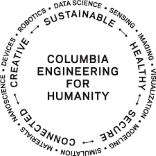Citations and Plagiarism
Avoiding plagiarism is a key component to Academic Integrity. When doing your work, always be sure to keep track of your sources and use citations.
Citations
A citation is a reference to another piece of work, used to distinguish your own ideas from others. It is important for the reader to understand when information is coming from a different source, as it helps inform them of how your ideas are supported by existing research. The reader can also use your citations to help understand how your work builds off of existing knowledge. There are many different ways to use citations, and we understand that this can be tough to learn. Please use this page to explore a few different citation styles, and always check with your professors at the beginning of each semester about their preferred methods of citation.
How Do I Cite My Sources?
As mentioned, there are many different citation methods. In the sciences and engineering, two of the most common methods are the American Psychological Association (APA) style and the Institute of Electrical and Electronics Engineerings (IEEE) style. Please see below some resources on how to use APA and IEEE:
APA Style
- Basic Principles from the American Psychological Association
- How to use quotations and the difference with paraphrasing
- How to build a Reference List
The Purdue Online Writing Lab (OWL) has a very comprehensive guide that you can use as well.
IEEE Style
- Full style manual
- How to cite references in IEEE style
- Basics from the University of Pittsburgh Libraries
The Purdue OWL also has a lengthy guide, with many examples in the subsections.
Plagiarism
What is Plagiarism?
From the Oxford Advanced Learner's Dictionary:
- Plagiarize (verb): to copy another person’s ideas, words or work and pretend that they are your own
- Plagiarism (noun): an act of plagiarizing something; something that has been plagiarized
Plagiarism is a serious offense, both at Columbia University and in many professional settings. According to plagiarism.org, "The expression of original ideas is considered intellectual property and is protected by copyright laws, just like original inventions. Almost all forms of expression fall under copyright protection as long as they are recorded in some way (such as a book or a computer file)". You want to avoid plagiarism not just because of academic or legal concerns, but also because it prevents you from truly learning your subject material. Often, plagiarism can be avoided by properly managing your citations and citing all of your sources in your work. When working on an assignment, always check with your professor about whether using outside sources is even allowed- if they have a no outside source policy, then even citations will not save you from having violated academic integrity.
Self-plagiarism
Did you know that the act of copying your own work is known as self-plagiarism? Many students are taken aback to learn that they are in violation of academic integrity when they re-use their own work for a different class. If you have two similar assignments, no matter how long it has been between the submissions, you are not allowed to submit the same work twice. This includes failing to cite your previous papers when working on an academic publication, as well as adapting an old assignment into a different format without permission. If you are given an assignment and you know that you have already done it in a different context, please consult with your professor- they can suggest a different assignment, or discuss acceptable ways to complete the new assignment.
For more informaiton, please read this article from Turnitin on how to avoid self-plagiarism.
Academic Integrity Tutorial
Every grad SEAS student must complete this tutorial prior to arrival, which has a lengthy set of videos to help you understand citations and plagiarism further. For your convenience, you will always have access to this tutorial- please visit Canvas (courseworks2.columbia.edu) and find the "SEAS Mandatory Orientation Tutorials" course under "My Courses". The Academic Integrity modules can be re-visited any time, and we welcome any feedback. Please email [email protected] if you have any questions or comments.
Citation Managers
Citation Management applications are a handy way to keep track of your sources, build out your citations, and create reference lists. Visit the Columbia University Libraries page below for information on three popular citation management tools: Zotero, Mendeley, and EndNote.
Professional Development and Leadership

Every Master of Science student must complete ENGI E4000, Professional Development and Leadership. PDL offers an elective on citation and paraphrasing - register for one to learn more, while also fulfilling part of your academic requirements!
Additional Resources
The CC-SEAS Office of Academic Integrity has more information on citing sources, links to workshops, and can also connect you with a Librarian to help you with your citations and research!
